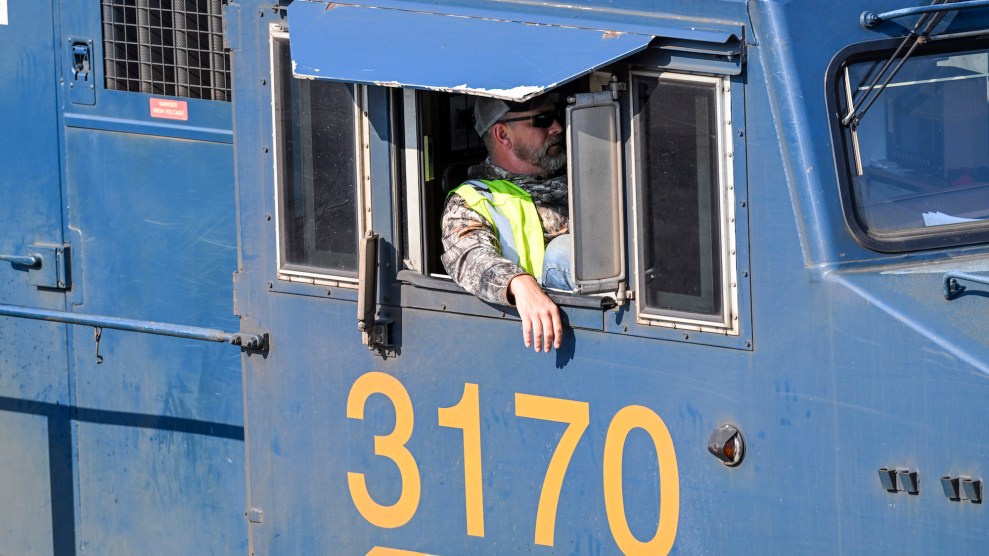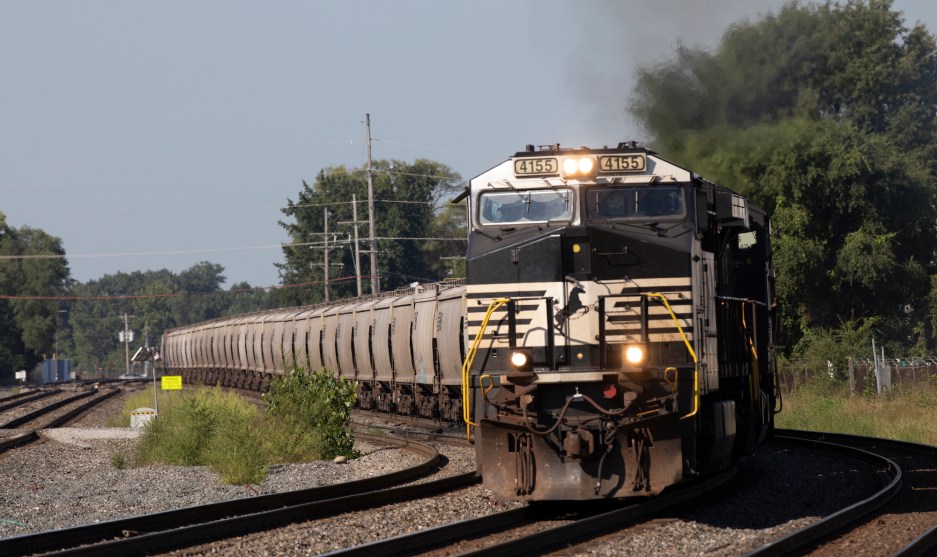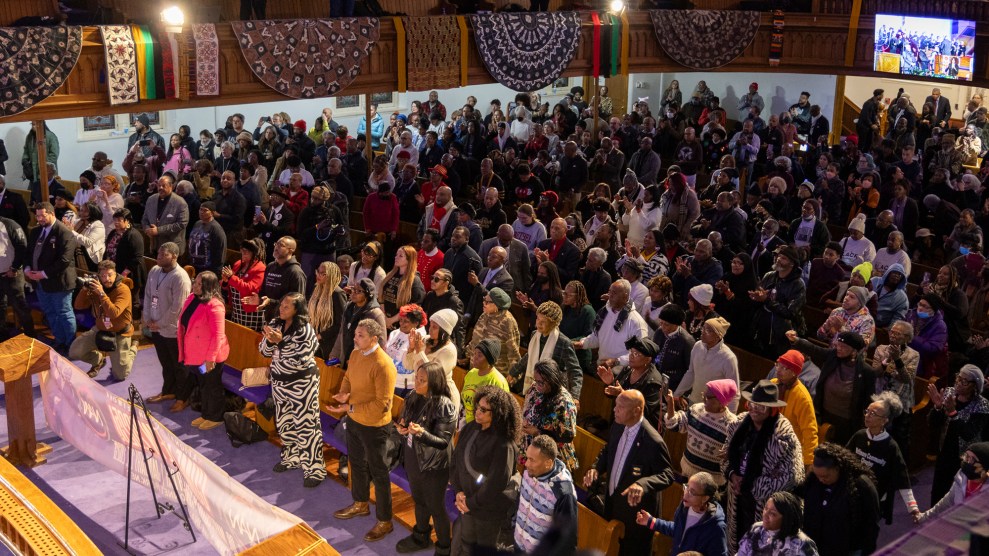
A rail worker at the Selkirk rail yard in New York this month.Hans Pennink/AP
On Thursday morning, rail companies and union leaders reached a tentative deal that will avert a strike or lockout that could have begun as soon as Friday. The question now is whether union members will accept the deal when it is put to a vote.
As I reported yesterday, the sticking point in negotiations has not been pay. Instead, workers have been fighting for sick days and increased freedom from punitive attendance policies adopted by rail companies. Engineer Ross Grooters described it to me as a fight “for the basic right to be able to be people outside of the railroad.”
In a joint statement, the leaders of the SMART Transportation Division and the Brotherhood of Locomotive Engineers and Trainmen, which together represent about half the workforce, said the tentative agreement would provide workers with “voluntary assigned days off,” as well the ability to take unpaid time off for medical care. In another win for workers, union leaders said healthcare costs would remain unchanged under the plan. Workers would still receive $5,000 of bonus payments and a 24 percent pay increase over five years under the most recent deal.
The tentative deal will now be voted on by union members. There are no guarantees it will be approved. Members of the International Association of Machinists and Aerospace Workers rejected an earlier agreement on Wednesday, and authorized a strike later this month. On social media, the reaction from workers to the most recent deal has been mixed with some expressing cautious optimism and others a sense that union leaders failed them.
It’s baffling how many pundits and politicos want to weight in on this railroad deal before the rank-and-file have been able to see the details and decide if it’s acceptable.
— Ross Grooters (@RossGrooters) September 15, 2022
President Joe Biden has announced the tentative agreement as a victory. A strike would have crippled supply chains throughout the country and caused billions in economic losses per day. The president and Democrats have been scrambling to avoid that upheaval in the lead up to the midterm elections.
The Washington Post reported that Biden called into the negotiations organized by Labor Secretary Marty Walsh on Wednesday to try to help secure a deal. Biden had expressed both “confusion and anger” about companies’ refusal to provide their workers more flexible schedules, according to the Post. Biden said in a statement announcing the deal, “These rail workers will get better pay, improved working conditions, and peace of mind around their health care costs: all hard-earned.”
Republicans, meanwhile, had been pushing legislation that would have forced workers to accept the recommendations of a board convened by Biden this summer. That would have meant forcing rail workers to have no sick time—paid or unpaid—or increased flexibility.
A Midwest-based conductor who requested anonymity to avoid potential retaliation, told me on Wednesday before the tentative agreement that he felt “hopeless” and that striking seemed “like the only recourse at this point.” On Thursday, the conductor texted to say he was waiting to see the full proposal before making up his mind about the deal. He was grateful for the increased flexibility for medical care, saying, “It’s not paid sick leave but at least we won’t be fired for going to the doctor now or being sick.”
“I still need to read the full proposal,” the conductor stressed, “but at the moment I am hopeful.” Others have been more critical, with one worker telling labor journalist Jonah Furman it was a “garbage deal.”
For now, it’s unclear which sentiment will prove more common.

















